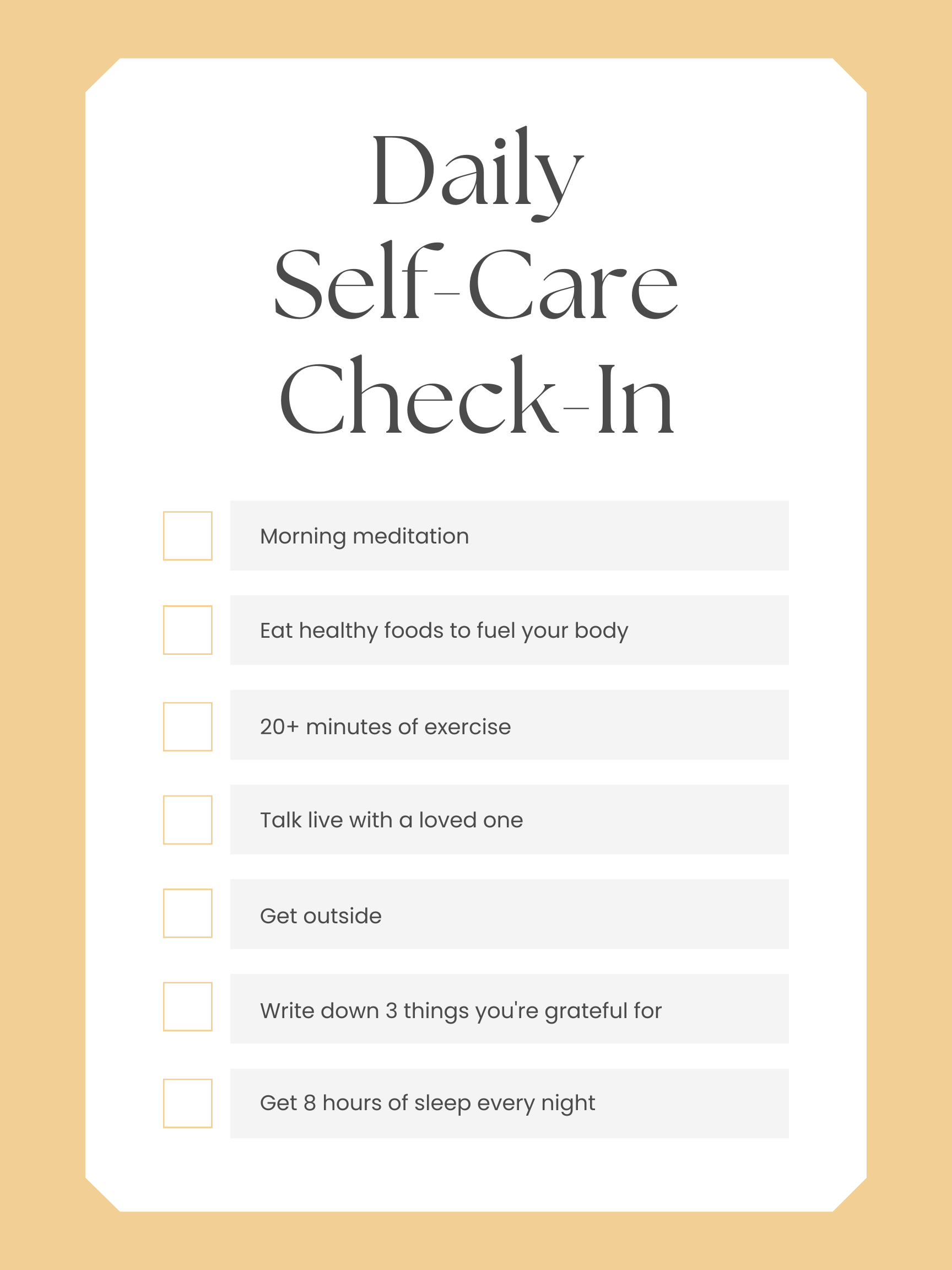Learn / 7 Essential Coping Skills For Drug and Alcohol Use
7 Essential Coping Skills For Drug and Alcohol Use


April 18th, 2023| Clinically Reviewed by
Key Points
- Coping skills help us manage stressful situations.
- There are many different ways you can cope with addiction in a healthy way.
- Learning healthy coping skills builds a strong foundation for your future.
Finding healthy coping skills for drug and alcohol use can feel overwhelming, especially when you’re already preoccupied with other stressors. Sometimes addictions form because they seem like means to deal with uncomfortable situations and feelings. And, as a result, substance use has the potential to turn into a coping mechanism; however, it’s a harmful one.
Learning the tools to navigate recovery, and applying them, can be extremely rewarding. Through therapies, groups, and moments in between, you can apply the skills that reinforce sobriety. Building a long lasting recovery toolkit can help you on your journey. Exploring programs that include individual, group, and family therapies can also be beneficial to jumpstarting that journey and serve as the foundation to continued healing.
What are Coping Skills?
Coping skills are instruments and methods that we use to work through stressful situations. These can look different for everyone.
Adopting healthy coping strategies can help you regulate your emotions and behaviors, helping you live a more positive lifestyle. There is a wide range of opportunities, or pearls, if you will, that you can gift yourself to make the possibilities a reality. It’s all about finding what works best for you and your recovery journey. Here are 7 “pearls” for you to consider.
7 Essential Coping Strategies: The “Pearls”
1.Talk Therapy
One of the most important ways you can cope with and heal your addiction is by seeking professional help. Talking regularly with a therapist can help you develop healthier, more effective habits. Your therapist will help you in an objective, non-judgemental way. And you can talk about a variety of topics to get to the root cause of your substance use.
Aside from how your addiction is physically affecting you, you can also explore its emotional impact. Ultimately, your explorations will help you understand how to incorporate and value the new tools you acquire.
2.Mindfulness
Mindfulness can be a powerful way to work through addiction. This practice can reduce cravings and help your sobriety journey. The goal of mindfulness is to increase awareness of yourself and your surroundings. In doing so, you enable yourself to be the observer of your own thoughts and behaviors, and you then have the opportunity to move past negative patterns. As you’re going through recovery, you can use mindfulness to reflect on your progress and give yourself more grace.
Different meditation and mindfulness apps are a good starting point for your mindfulness journey. They can guide you through meditations, focus on different areas of growth, and are easily accessible to practice on your own time.
3. Fitness
Exercise creates positive structure and routines, which can help you stay on track with other sobriety aspirations. And the endorphins we release when we work out can boost overall mood and motivation.
Exercise can help you physically, mentally, and spiritually. It’s important to nurture the lifelong relationship that you have with your mind and body. And keeping fit can lower your chances of relapse.
There are a variety of fitness apps that help you reach your goals. Some offer virtual classes, while others track your progress. Whatever your needs are, there are tools out there to help you on your journey.
4. Practice Gratitude
Finding gratitude through your recovery process is extremely empowering. Focusing on the positive and where you want your life to go will help you stay in line with your goals. Practicing gratitude also allows you to seek out healthy experiences and relationships instead of resorting back to old ways. And gratitude helps you develop a personal arsenal of strengths needed to live a sober and happy life.
5. Support Groups
Emotional support can be part of the framework for healthy sobriety. Surrounding yourself with others who support your recovery, and those in recovery themselves, can help reinforce your goals and maintain morale. Identifying with and feeling accepted by a group can give us a greater purpose.
Different support groups like AA allow you and others in similar situations to come together. You’ll dive into addiction topics and open up about feelings that are often universally experienced.
6. Connecting with Loved Ones
Outside of groups, having supportive loved ones in your life makes all the difference. Psychoeducation for loved ones, family therapy and/or couples counseling are great options for finding common ground and working through the pervasive aspects of addiction alongside the important people in your life. Your loved ones will learn more about addiction, what you’re experiencing, and how to work through issues together.
7. Accountability Partner
While it’s important to be self-reliant, having someone support you along your journey can be a gamechanger. Oftentimes, your accountability partner is someone from a support group that you’re a part of, like AA.
You should first decide what your goals, expectations, and boundaries are for your recovery. Communicating clearly and honestly is important throughout this process. You’ll focus on moving forward together, and they can also encourage and reinforce self compassion and morale. Sometimes, others can have tips that open your perspective and scope for your own rehab journey.
How Do They Help?
Healthy coping mechanisms can help reduce cravings for drugs and alcohol. They can also prevent relapse by teaching you how to identify warning signs.
Beyond the physical cravings, healthy coping skills benefit all areas of your life. You’ll discover a new positive life perspective, improve communication skills, and follow through with new goals. Professionals at Gateway Foundation describe even more benefits learned from healthy coping mechanisms:
- Manage strong impulses and emotions
- Increase confidence
- Better resilience
- Improve overall health and wellness
Building Skills to Last a Lifetime
A strong foundation for your future is built day by day. By setting realistic goals and timelines, you can create an action plan.
Creating your game plan can be easy. First, identify your inner narrative. Acknowledge your hurdles, and then shift the energy you would have used on the hurdles towards reinforcing the positive. In taking this mindful approach, you can be more aware of how your thoughts impact your actions. Finally, be your own best friend. Give yourself kindness and grace as you carve out your journey.
Once you lay that groundwork, there are many ways you can sustain the skills that you learn. Here are some ideas:
- Start a new hobby that feels fulfilling and reinforces your new lifestyle.
- Maintain healthy relationships, in and outside the recovery community.
- Write your own narrative. Reflect on why sobriety is important to you, what challenges you have overcome, and what wins you have embraced. You can go back and read your story on days that are harder than others to remind yourself of how far you have come.
While life can be full of stressors as you navigate through your rehabilitative journey, the skill toolkit you build can be with you every step of the way. You can explore programs that help you build and enhance your coping skills, so you find a lifetime of happiness.
Download your free Self-Care Check-In below:

-
Understanding psychotherapy and how it works. (n.d.). Https://Www.Apa.Org. Retrieved March 9, 2023, from https://www.apa.org/topics/psychotherapy/understanding
-
Garland, E. L., & Howard, M. O. (2018). Mindfulness-based treatment of addiction: Current state of the field and envisioning the next wave of research. Addiction Science & Clinical Practice, 13(1), 14. https://doi.org/10.1186/s13722-018-0115-3
-
The best meditation apps. (2023, January 18). The New York Times. https://www.nytimes.com/wirecutter/reviews/best-meditation-apps/
-
CDC. (2022, June 16). Benefits of physical activity. Centers for Disease Control and Prevention. https://www.cdc.gov/physicalactivity/basics/pa-health/index.htm
-
Smith, M. A., & Lynch, W. J. (2012). Exercise as a potential treatment for drug abuse: Evidence from preclinical studies. Frontiers in Psychiatry, 2, 82. https://doi.org/10.3389/fpsyt.2011.00082
-
Lichtman, S., & Poser, E. G. (1983). The effects of exercise on mood and cognitive functioning. Journal of Psychosomatic Research, 27(1), 43–52. https://doi.org/10.1016/0022-3999(83)90108-3
-
9 of the best workout apps. (2022, October 28). https://www.medicalnewstoday.com/articles/best-fitness-apps
-
Taylor, I., McNamara, N., & Frings, D. (2020). The “doing” or the “being”? Understanding the roles of involvement and social identity in peer‐led addiction support groups. Journal of Applied Social Psychology, 50(1), 3–9. https://doi.org/10.1111/jasp.12635
-
Hart, K. E., & McGarragle, O. (2010). Perceived social support from counselors and client sobriety during aftercare: A pilot study of emotional and functional support. Alcoholism Treatment Quarterly, 28(2), 198–229. https://doi.org/10.1080/07347321003648216
-
Witbrodt, J., Kaskutas, L., Bond, J., & Delucchi, K. (2012). Does sponsorship improve outcomes above Alcoholics Anonymous attendance? A latent class growth curve analysis: AA involvement and abstinence classes. Addiction, 107(2), 301–311. https://doi.org/10.1111/j.1360-0443.2011.03570.x
-
Ahmadpanah, M., Mirzaei Alavijeh, M., Allahverdipour, H., Jalilian, F., Haghighi, M., Afsar, A., & Gharibnavaz, H. (2013). Effectiveness of coping skills education program to reduce craving beliefs among addicts referred to addiction centers in hamadan: A randomized controlled trial. Iranian Journal of Public Health, 42(10), 1139–1144. https://www.ncbi.nlm.nih.gov/pmc/articles/PMC4436542/
-
Coping skills therapy for addiction | chicago illinois | gateway. (n.d.). Gateway Foundation. Retrieved March 9, 2023, from https://www.gatewayfoundation.org/programs-services/clinical-services/coping-skills-therapy/
Return to Resource Library
Our Promise
How Is RehabPath Different?
We believe everyone deserves access to accurate, unbiased information about mental health and addiction. That’s why we have a comprehensive set of treatment providers and don't charge for inclusion. Any center that meets our criteria can list for free. We do not and have never accepted fees for referring someone to a particular center. Providers who advertise with us must be verified by our Research Team and we clearly mark their status as advertisers.






